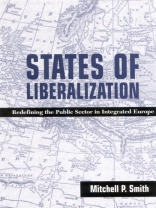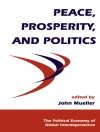As economic competition is introduced into areas formerly served by public sector monopolies, to what extent do governments lose discretion over their use of the public sector? States of Liberalization examines the impact of the European Union’s rigorous single-market competition policy on the abilities of Western European governments to use the public sector to achieve political objectives. Examining several politically contentious sectors, including government purchasing of goods and services, postal services, and public sector financial institutions, Mitchell P. Smith explores and explains the scope and the limits of this transformation. While European economic integration and the application of European Community competition policy have substantially infused competition into public services, the process has been more modest, and more deliberate, than a simple reading of Europe’s potent market-making mechanisms would predict.
Зміст
List of Tables
Acknowledgments
1. Introduction
2. European Integration as Market-Making
3. Explaining Europeanization
4. European Community Competition Policy and the Public Sector
5. Government Purchasing: The Persistence of Protectionism
6. Delayed Delivery: Postal Services Liberalization in Comparative Context
7. Challenging the Social Market Economy? European Community Competition Policy and Germany’s Public Law Banks
8. Liberalization and Its Limits
Notes
Bibliography
Index
SUNY series in Global Politics
Про автора
Mitchell P. Smith is Associate Professor of Political Science and International and Area Studies at The University of Oklahoma. He is the coeditor (with Thomas Banchoff) of
Legitimacy and the European Union: The Contested Polity.












